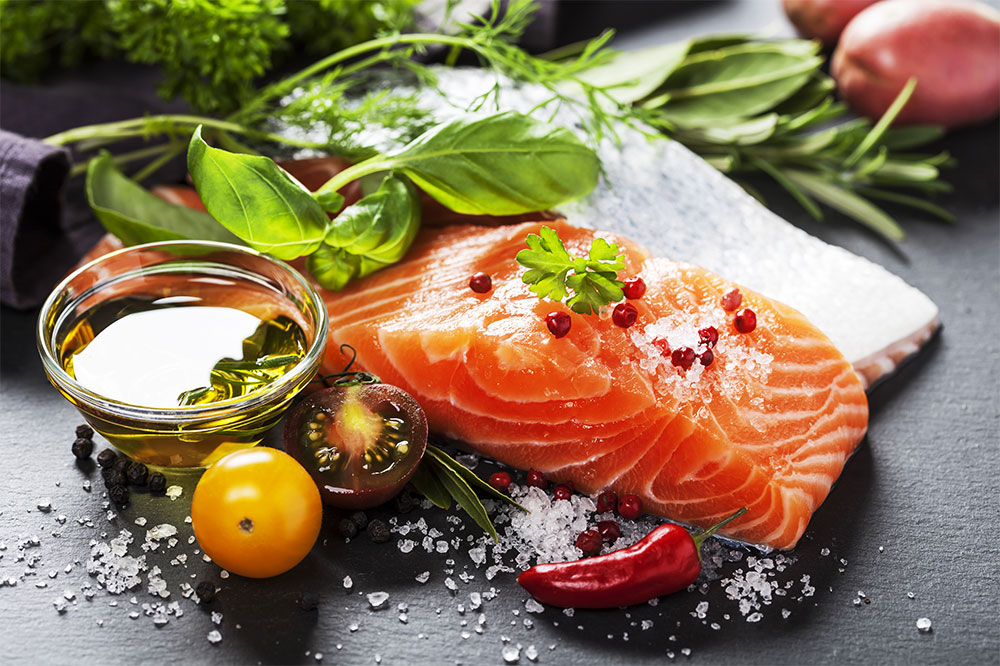
Importance of following a holistic meal plan
In the past few years, people’s meal plans have been deprived of nutrients due to the burden of processed foods. Therefore, to improve health and live the best life possible, it is crucial to adopt healthy eating habits. A holistic meal plan focuses on the individual’s optimum health while considering multidimensional aspects of wellness. It shows impact at a cellular level, i.e., in the body, mind, and spirit. Scroll down to learn more about this clean, natural meal plan!
Top foods to incorporate
A holistic meal plan should meet an individual’s specific nutritional needs, including macronutrients (carbs, fats, and protein) and micronutrients (such as vitamin C, iron, and zinc). Here, we have compiled the top foods to add to your holistic meal plan.
- Nuts and seeds: When you look at a walnut, it will look like a brain, which is no coincidence. Walnuts are a powerhouse of omega-3 fatty acids, which benefit the brain’s health. Similarly, other nuts and seeds, including almonds, and flax seeds, have a great combination of omega-3 and omega-6 ratios.
- Beans and legumes: Chickpeas, black beans, peas, and lentils are healthy beans and legumes you could eat in your holistic meal plan. They are rich in protein, dietary fiber, and vitamin B, aiding healthy gut function.
- Salmon: Naturally-sourced salmon is an excellent source of omega-3 fatty acids and doesn’t have mercury or other toxic contaminants like farm-raised fish. It also has plenty of protein, which is crucial for tissue repair and stimulating recovery from illness or injury.
- Brown rice: Generally, carbs have a bad reputation as they increase the risk of obesity and diabetes. However, carbs are the primary source of fuel for our body. Here, you have to be selective about the carbs you consume. Brown rice is a natural and unprocessed version of carbs, providing the required energy to thrive.
- Sweet potatoes: Besides adding sweetness to your holistic meal plan , sweet potatoes provide a high fiber level to improve your gut and heart health and vitamin A to boost your immunity and vision health.
- Coconut: Coconut water has an impressive amount of potassium and is an excellent replenisher for dehydration. It is also known for its healthy fat content, which will help build and repair cells.
- Avocado: Avocado is another perfect source of good fat, folate, iron, vitamin E, potassium, and fiber. Consume them raw, with sandwiches or salads, rice, or as smoothies.
Tips for eating a holistic meal plan for beginners
A holistic health journey often involves more than just food since what we consume affects the mind and body. Here are a few simple tips for a holistic diet for beginners to adapt to a holistic lifestyle.
- Eat fiber: Consume fresh and organic food sources like whole grains, fruits, and vegetables to prevent diseases and achieve holistic health.
- Stay hydrated: Drink adequate water instead of caffeinated and sugary drinks to keep yourself hydrated.
- Limit salt intake: Limit your intake of sodium and processed sugar foods. Instead, opt for organic raw fruits that have natural sugar.
- Don’t overeat: Watch the food portions on your plate to avoid overeating and the onset of digestive and sleep disturbances.
Tips to prepare recipes to include in a holistic meal plan
When choosing and planning a recipe for a holistic meal plan, several factors must be considered. You should ensure the meal is healthy, tasty, and budget-friendly while accommodating every nutritional need. Here are a few ways to make nutritious changes to your recipe.
- Switch to healthy fats: If you want to add fats to a recipe, opt for healthy oils like olive oil to decrease the amount of fat. Choose lean meats and low-fat dairy products to lower the hidden fat.
- Retain the nutrients: Eat fresh fruits and vegetables with peels that contain varied nutrients. Steam vegetables instead of boiling or frying them to minimize the loss of nutrients.
- Reduce salt level: A high-salt meal plan will increase the risk of a wide range of chronic ailments, like hypertension. Use iodized salt. Avoid processed foods like pasta or noodles. Limit the consumption of salty processed meats like bacon and salami.
Benefits of eating a holistic meal plan
Here are the benefits of a holistic meal plan.
- Blood sugar balance: A holistic meal plan increases soluble fiber intake, which will balance your blood sugar and aid in maintaining healthy insulin.
- Improved digestion: Holistic nutrition, including whole grains, avocado, and leafy greens, promotes healthier digestive function and relieves symptoms like diarrhea and constipation.
- Better sleep: Poor sleep quality leads to a weaker immune system. Thankfully, a holistic meal plan aids in better sleep and keeps up your energy level.
Everything you consume plays a key role in how your body works and how you feel physically and emotionally. A holistic meal plan leads to a healthy future for sustainable food as naturally as possible. If you want to begin your journey to better health, it’s never late to explore the holistic meal plan.




